Related Research Articles
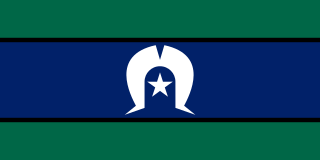
The Torres Strait Islands are an archipelago of at least 274 small islands in the Torres Strait, a waterway separating far northern continental Australia's Cape York Peninsula and the island of New Guinea. They span an area of 48,000 km2 (19,000 sq mi), but their total land area is 566 km2 (219 sq mi).
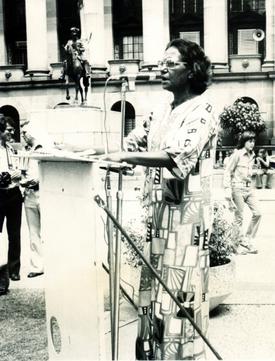
Oodgeroo Noonuccal ( UUD-gə-roo NOO-nə-kəl; born Kathleen Jean Mary Ruska, later Kath Walker was an Aboriginal Australian political activist, artist and educator, who campaigned for Aboriginal rights. Noonuccal was best known for her poetry, and was the first Aboriginal Australian to publish a book of verse.

Lowitja O'Donoghue, also known as Lois O'Donoghue and Lois Smart, was an Australian public administrator and Indigenous rights advocate. She was the inaugural chairperson of the Aboriginal and Torres Strait Islander Commission (ATSIC) from 1990 to 1996. She is known for her work in improving the health and welfare of Indigenous Australians, and also for the part she played in the drafting of the Native Title Act 1993, which established native title in Australia.
NAIDOC Week is an Australian observance lasting from the first Sunday in July until the following Sunday. The acronym NAIDOC stands for National Aborigines and Islanders Day Observance Committee. NAIDOC Week has its roots in the 1938 Day of Mourning, becoming a week-long event in 1975.
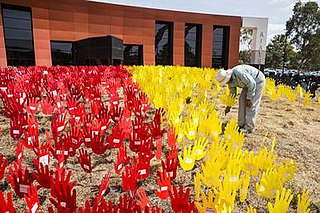
The Australian Institute of Aboriginal and Torres Strait Islander Studies (AIATSIS), established as the Australian Institute of Aboriginal Studies (AIAS) in 1964, is an independent Australian Government statutory authority. It is a collecting, publishing, and research institute and is considered to be Australia's premier resource for information about the cultures and societies of Aboriginal and Torres Strait Islander peoples.
Indigenous Australian self-determination, also known as Aboriginal Australian self-determination, is the power relating to self-governance by Aboriginal and Torres Strait Islander peoples in Australia. It is the right of Aboriginal and Torres Strait Islander peoples to determine their own political status and pursue their own economic, social and cultural interests. Self-determination asserts that Aboriginal and Torres Strait Islander peoples should direct and implement Aboriginal and Torres Strait Islander policy formulation and provision of services. Self-determination encompasses both Aboriginal land rights and self-governance, and may also be supported by a treaty between a government and an Indigenous group in Australia.

Henrietta Marrie is a Gimuy Walubara Yidinji elder, an Australian Research Council Fellow and Honorary Professor with the University of Queensland.
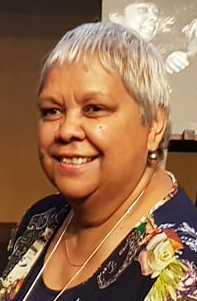
Jacqueline Gail "Jackie" Huggins is an Aboriginal Australian author, historian, academic and advocate for the rights of Indigenous Australians. She is a Bidjara/Pitjara, Birri Gubba and Juru woman from Queensland.
Bidjara, also spelt Bidyara or Pitjara, is an Australian Aboriginal language. In 1980, it was spoken by 20 elders in Queensland between the towns of Tambo and Augathella, or the Warrego and Langlo Rivers. There are many dialects of the language, including Gayiri and Gunggari. Some of them are being revitalised and are being taught in local schools in the region. The various dialects are not all confirmed or agreed by linguists.
The Medics are an Australian rock band formed in Cairns, Queensland in 2007. In April 2010 they moved to Brisbane. The band were formed by Emma Andrews, Jhindu Lawrie, Charles Thomas and Kahl Wallis. They later expanded to a five-piece with Andrew Thomson joining. Andrews left the band, reducing it back to four members. They are mentored by Lawrie's father, Coloured Stone's Bunna Lawrie.
The NAIDOC Awards are annual Australian awards conferred on Australian Aboriginal and Torres Strait Islander individuals during the national celebration of the history, culture and achievements of Australian Aboriginal and Torres Strait Islander peoples known as NAIDOC Week.

Leeanne Margaret Enoch is an Australian politician currently serving as the Queensland Minister for Treaty, Minister for Aboriginal and Torres Strait Islander Partnerships, Minister for Communities and Minister for the Arts. She has also served as the Labor Party member for Algester in the Queensland Legislative Assembly since 2015.
Jessa Rogers is an Aboriginal Australian education leader and Fulbright Scholar currently based between Melbourne and Queensland.
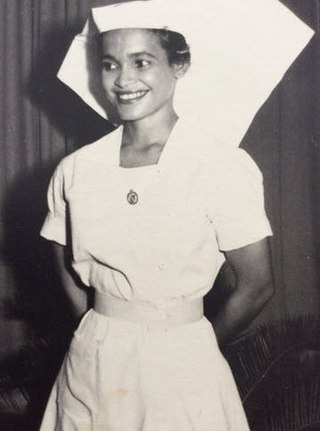
MaryAnn Bin-Sallik is a Djaru Elder and Australian academic, specialising in Indigenous studies and culture. She was the first Indigenous Australian to gain a doctorate from Harvard University.
The Coalition of Aboriginal and Torres Strait Islander Peak Bodies, usually known as the Coalition of Peaks is an Australian community-controlled peak body whose members comprise Aboriginal and Torres Strait Islander organisations. Its main purpose is to negotiate with the various Australian governments regarding a national agreement on the Closing the Gap framework. Closing the Gap is a government strategy that aims to reduce disparity between Aboriginal and Torres Strait Islander peoples and non-Indigenous Australians on key health, education, and economic opportunity targets.
Rose Richards is an Australian healthcare worker and human rights advocate. Also known as Mookai Rosie she is an Aboriginal community leader, a Kuku Yalanji and Tagalaka elder from Far North Queensland. She advocated for culturally safe health care for Aboriginal people and Torres Strait Islander maternity patients and established Australia's first Indigenous community-controlled corporation that specialises in health care services for women and children.
Elsie Heiss, also known as Aunty Elsie, is an Indigenous Australian, a Wiradjuri elder and a Catholic religious leader. She has led Aboriginal Catholic Ministry programs for over three decades and was NAIDOC Female Elder of the Year in 2009.
Vonda Lisa Malone is a member of the Queensland Government Truth-telling and Healing Inquiry. Vonda was the first female Mayor of the Torres Shire Council.
Bronwyn Fredericks is an Indigenous Australian academic and administrator. Her scholarship extends across education, health, community development, policy, and Indigenist research methods, including a focus on work relevant to Aboriginal and Torres Strait Islander people using participatory and community led approaches. Her contributions have been recognised through the NAIDOC Education Award in 2022 and the Aboriginal and Torres Strait Islander Health Award in 2019. She is currently the Deputy Vice Chancellor at the University of Queensland.
References
- ↑ "Michelle Deshong - Churchill Trust". www.churchilltrust.com.au. Retrieved 4 November 2023.
- ↑ "Michelle Deshong". Reef Restoration and Adaptation Program. Retrieved 3 November 2023.
- 1 2 Le, Joanna (24 April 2017). ""We need to back ourselves": Michelle Deshong on the rise of Aboriginal women leaders". Women's Agenda. Retrieved 3 November 2023.
- 1 2 "Michelle Deshong". Australian Rural Leadership Foundation. Retrieved 3 November 2023.
- 1 2 3 4 5 6 7 "National NAIDOC Scholar of the Year promotes power of knowledge". www.indigenous.gov.au. 21 July 2015. Archived from the original on 7 November 2023.
- 1 2 3 "A passion for Indigenous politics". ABC. Australian Broadcasting Corporation . Retrieved 3 November 2023.
- 1 2 "Oz to Oz: Michelle Deshong, Fulbright Scholar". Kansas State University . Archived from the original on 2 May 2016. Retrieved 3 November 2023.
- ↑ "Michelle Deshong: Australian Aboriginal Methods of Self-Governance" (video (1:16:14) + text). NNI Database. Retrieved 3 November 2023.
- 1 2 "The James Love Churchill Fellowship to research and apply best practice on Indigenous governance and leadership models - Churchill Trust". Churchill Trust. Retrieved 4 November 2023.
- 1 2 3 4 5 "Michelle Deshong". UN Women Australia. 21 June 2021. Retrieved 8 August 2024.
- 1 2 Desailly, Georgie (October–December 2023). "Michelle Deshong: Fearless Force". BDmag. Retrieved 3 November 2023.
- 1 2 3 4 "NAIDOC Scholar of the Year - the story of Michelle Deshong". NITV. Retrieved 3 November 2023.
- 1 2 "Michelle Deshong". Reef Restoration and Adaptation Program. 9 May 2024. Retrieved 8 August 2024.
- ↑ "Michelle Deshong". UN Women Australia. 21 June 2021. Retrieved 8 August 2024.
- ↑ "Michelle Deshong". AIGI. Retrieved 8 August 2024.
- 1 2 Le, Joanna (24 April 2017). ""We need to back ourselves": Michelle Deshong on the rise of Aboriginal women leaders". Women's Agenda. Retrieved 4 November 2023.
- ↑ "Michelle Deshong". NAIDOC . 2015. Retrieved 3 November 2023.
- ↑ Antje (31 July 2019). "TED talk: Black women - Tipping the balance | Michelle Deshong | TEDxJCUCairns". The Commons. Retrieved 3 November 2023.
- ↑ "HB5". Homeward Bound. 22 November 2021. Retrieved 8 August 2024.
- ↑ "Michelle Deshong - Homeward Bound". 21 April 2021. Retrieved 5 November 2023.
- ↑ "About HB - Homeward Bound". 25 January 2015. Retrieved 5 November 2023.
- 1 2 "Michelle Deshong". Australian Government Directory. 17 May 2021. Retrieved 8 August 2024.
- ↑ "New Co-Chair appointed to Supply Nation Board" (Media release). 17 October 2022.
- ↑ Maxwell, Rudi (15 May 2023). "Women create 'blakprint' for Indigenous gender justice". Mandurah Mail. Retrieved 5 November 2023.